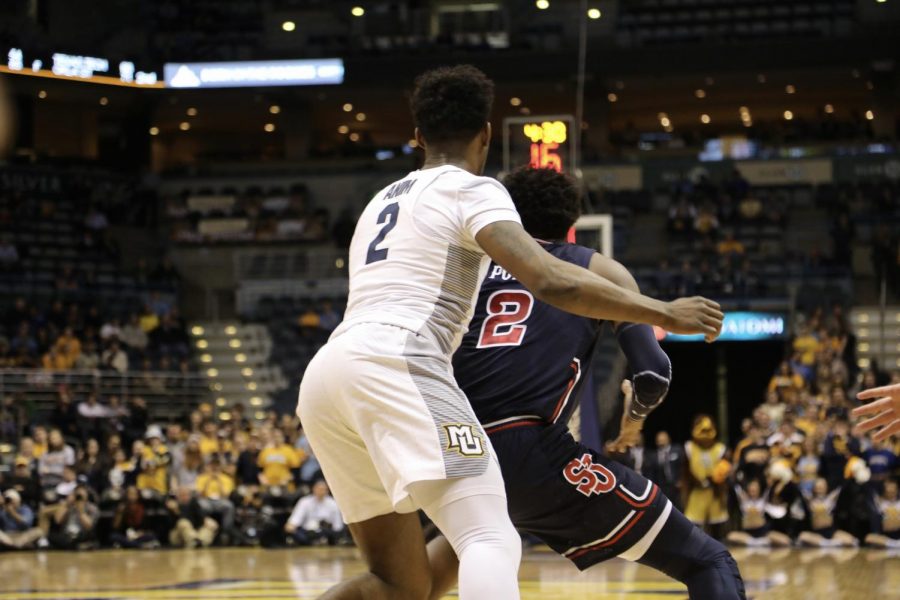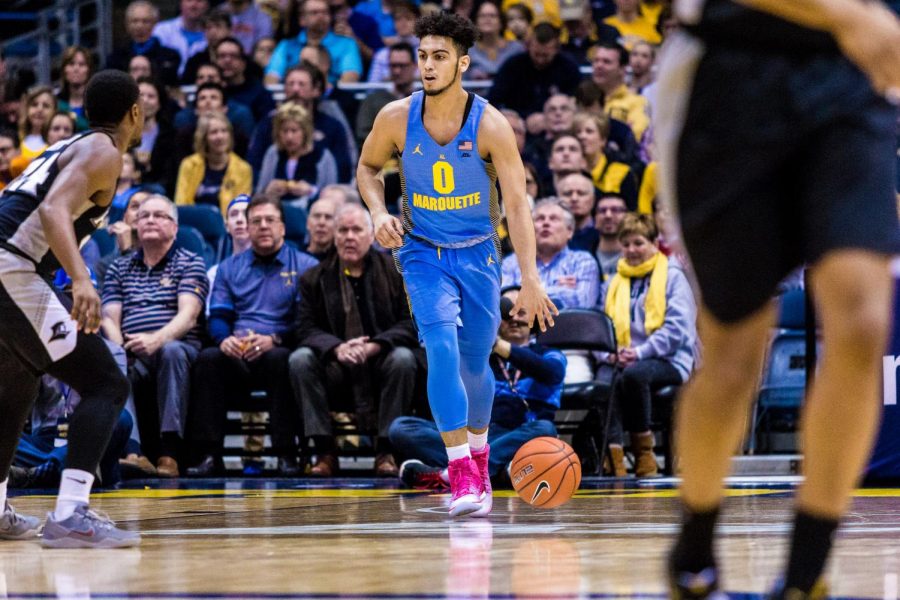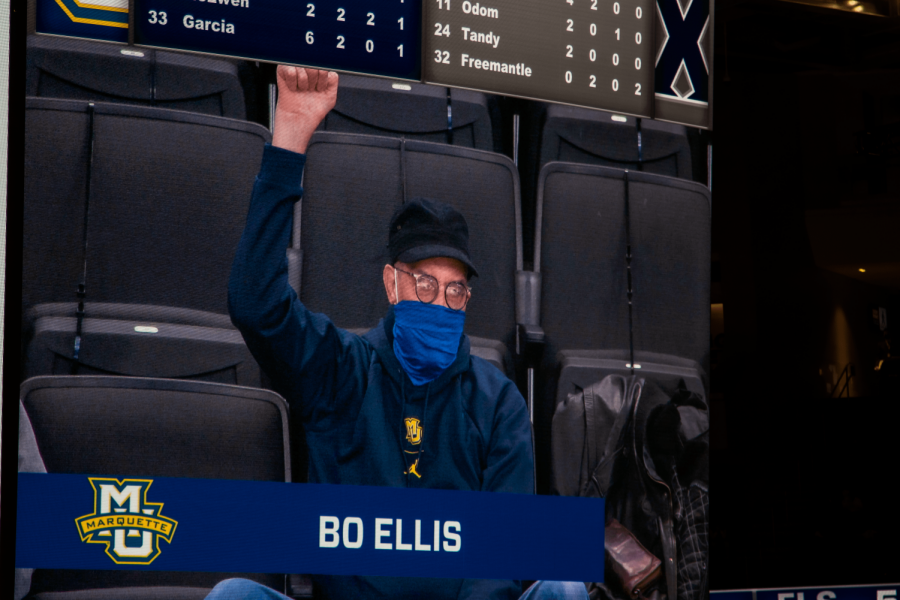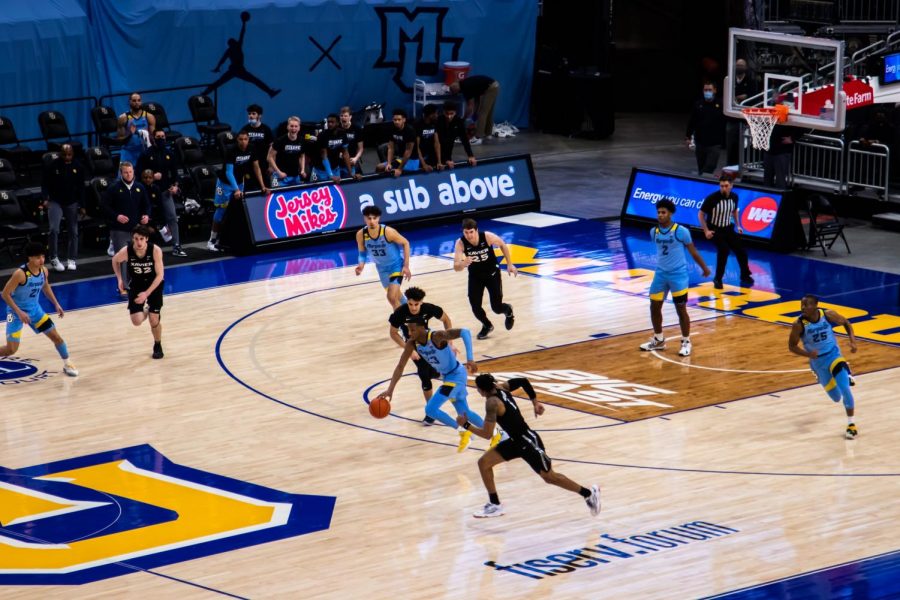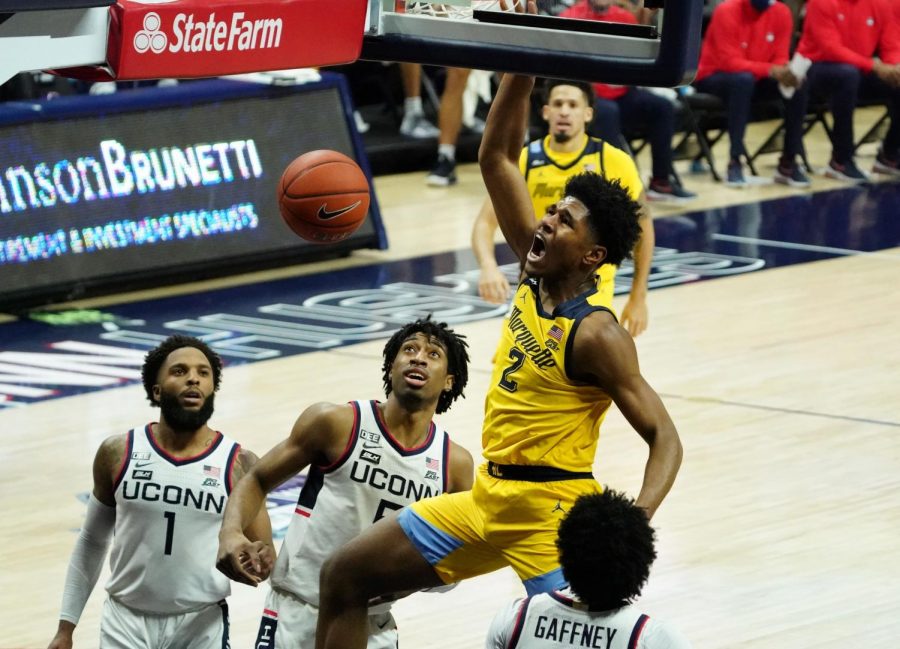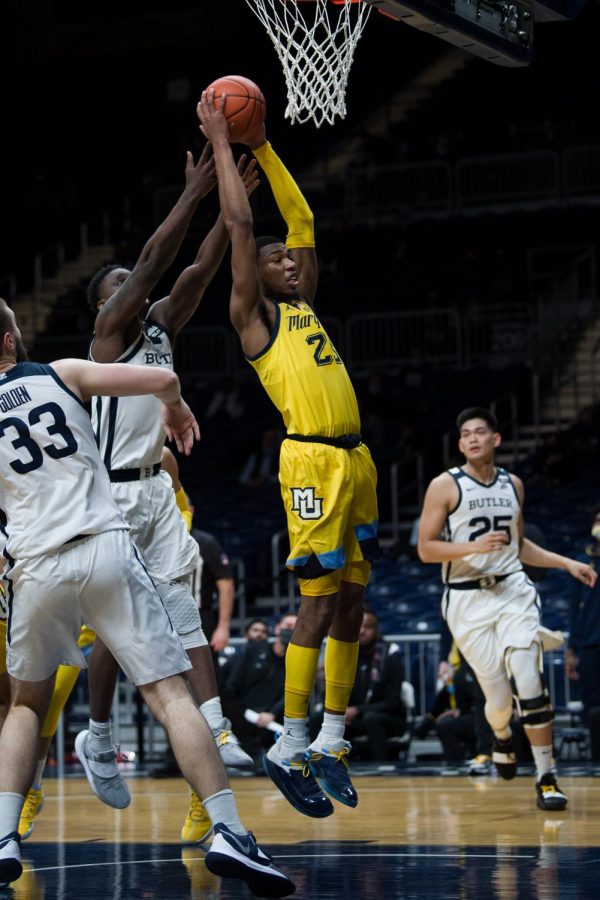While trailing at halftime in its eventual 90-86 win over Creighton Feb. 17, Marquette switched to a zone defense in a desperate attempt to slow the Bluejays down.
Creighton’s offensive efficiency immediately dropped from an astonishing 1.514 points per possession in the first half to 0.943 points per possession in the second half.
“Creighton is just a really good half-court offensive basketball team because their best shooter is their center,” Marquette head coach Steve Wojciechowski said. “(In the zone), you don’t have to defend as many ball screens. It keeps our bigs near the basket.”
Despite recent defensive success against Creighton and St. John’s, the zone won’t necessarily be a staple of Marquette’s defense moving forward.
“It doesn’t matter what defense you play. When you’re playing with great effort and intensity, it’s going to look better,” Wojo said. “It’s the guys playing the zone; it’s not necessarily the zone.”
Marquette has experimented with zone defense throughout the year but never executed it as well as they have in recent games, making Wojo reluctant to rely on it going forward.
“The Creighton game is the best we played in the zone,” Wojo said. “Analytically, the zone hasn’t proven necessarily to be any better than our man, but it was against Creighton.”
Creighton head coach Doug McDermott doesn’t attribute his team’s loss to playing against the zone. He thought his team’s defensive woes had far more impact in the Bluejays’ loss than Marquette’s change of tactics.
“You can’t expect to win if you can’t defend and don’t rebound,” McDermott said. “While the zone certainly slowed the pace of the game down, it didn’t have a lot to do with the outcome.”
Against St. John’s, a mix of man-to-man and zone coverage throughout the game limited the Red Storm to only 1.043 points per possession, a significant improvement for Marquette after allowing 1.3 in the second half of the first matchup.
“(The zone defense) is a good way to switch up the rhythm and really throw them off here and there,” sophomore forward Sam Hauser said, after the St. John’s win.
Marquette also limited St. John’s star point guard Shamorie Ponds to 5-for-18 shooting after scoring 44 points in the first matchup, although Wojo said the zone was not the cause of the improvement.
“Anytime you play a great player, it’s a collective effort, whether we were in man or zone,” Wojo said. “Our team was really locked into the gameplan and trying to make life a lot more difficult for (Ponds) than we did the first time around.”
Even if Wojo isn’t quite sold on the benefits of a zone-heavy scheme, opponents took notice.
DePaul head coach Dave Leitao prepared his team to see a heavy dose of zone going into Saturday’s matchup with the Golden Eagles.
“When you have a team that potentially is going to play a decent amount (of zone), you have to make sure you’re sound in what you want to run and where you want to get the ball,” Leitao said prior to Saturday’s matchup.
Marquette hardly played zone at all in its 70-62 loss to DePaul and the few times Marquette showed zone Saturday was hardly more effective than the team’s man-to-man scheme. The Blue Demons had a 49-30 rebounding advantage and corralled 44 percent of its missed shots.
“When you allow teams to get offensive rebound after offensive rebound, they’re in positions more to get fouled,” Wojo said. “And they got fouled, and we don’t get fouled.”
Regardless of whether Wojo remains using zone as a weapon, execution will remain a key with only one regular season game remaining and nine conference losses.

